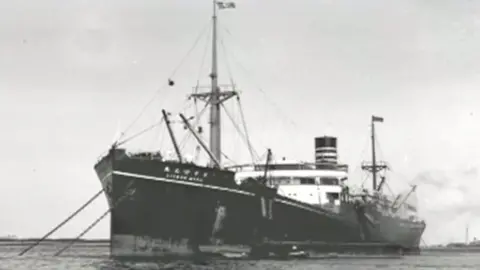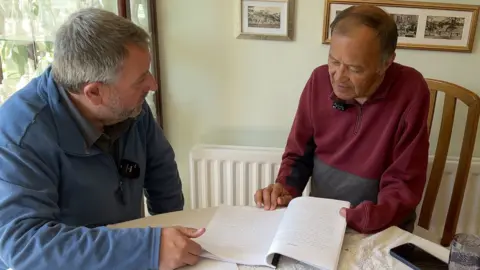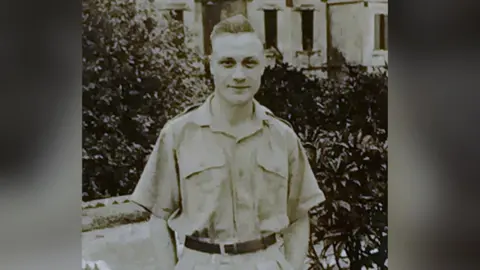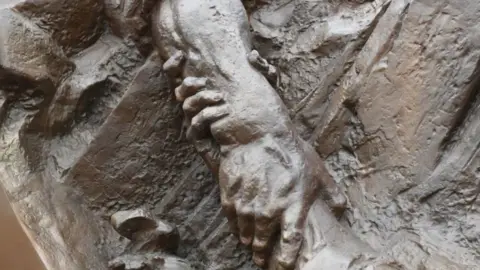Memorial to 800 PoWs killed in Japanese cargo ship
 BBC
BBCA memorial has been unveiled to the sinking of a wartime Japanese cargo ship and the loss of more than 800 British prisoners of war.
The Lisbon Maru was torpedoed by a US submarine in October 1942, which did not know it was taking the PoWs from Hong Kong to Japan, to be used as forced labour.
Before fleeing the sinking vessel, guards secured the hatches on the allied prisoners. "The intent was that the PoW's would go down with the ship," said Ken Salmon, from Hook, whose father was saved by Chinese fishermen.
The memorial, on Qingbang Island, South East of Shanghai, was created after the descendant of another prisoner wrote directly to Chinese President, Xi Jinping.

Mr Salmon's father, Andrew, was one of the lucky ones.
He was in the ship's hold number three and was with other members of the Royal Artillery. A group managed to use a ladder and force the hatches before it broke, trapping many of the others below decks.
"Once he got out in the fresh air, he was lucky he wasn't shot," said Mr Salmon.
"The Japanese saw the prisoners were breaking out of the holds," he explained. "They opened fire using machine guns and rifles."
His father, Andrew, wrote an account of what happened in a diary he managed to keep throughout his captivity, even though its discovery would probably have led to his execution.
After the war his wife typed up his notes telling how he had dived overboard and was one of around 380 prisoners who were rescued by local fishermen.
 Family photograph
Family photographThe Royal Artilleryman and the other survivors were recaptured by the Japanese and put on another ship to continue their journey, eventually being liberated at the end of the war in August 1945.
Reading his father's account, Ken said he regarded him as "a bit of a hero.
"He never actually had any hatred for the Japanese, which some people find strange."
Andrew Salmon even travelled to Osaka in the 1960s in an attempt to try and locate the camp where had been held.
 Ken Salmon
Ken SalmonMilitary historian, Brian Finch, who was associate producer on a documentary telling the story of the sinking said too few people knew about the Lisbon Maru.
"I think it's the inevitable consequence of people in 1945, who celebrated in May what they thought was the end of the war.
"It was just the end of the war in Europe and they'd forgotten about people in the Far East.'
Ken Salmon has been unable to discover anything about who it was who saved his father's life, other than them being a fisherman. But having been able to travel there and thank the local community meant a lot to him.
"A lot of the PoW's were taken by the current and washed out to sea. He was lucky in so many ways."
You can follow BBC Berkshire on Facebook and X.
